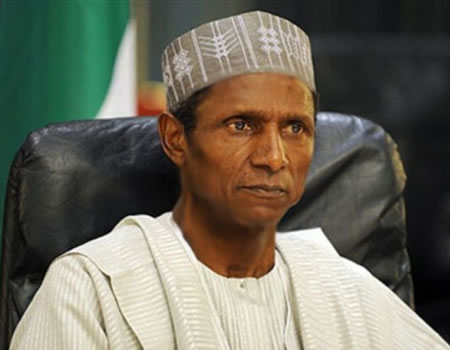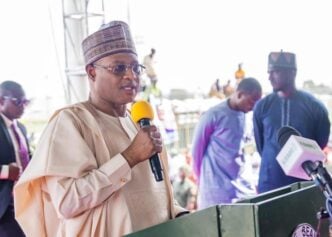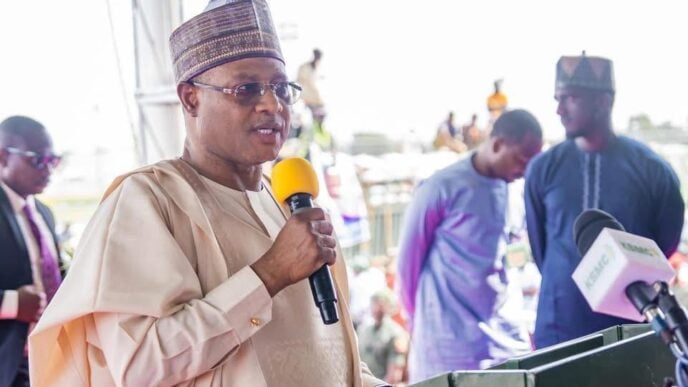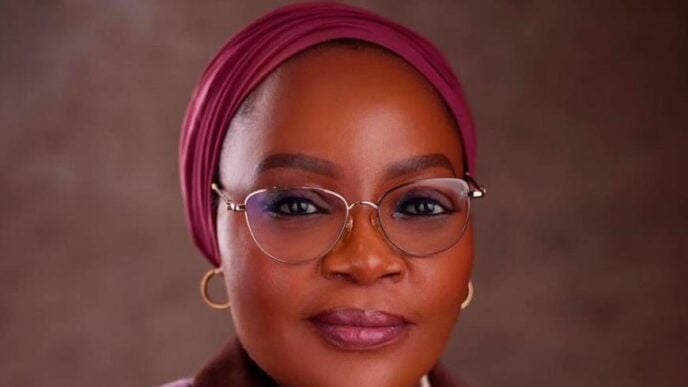BY OLU ALLEN
In the ongoing struggle to define good governance in Nigeria, one name consistently evokes admiration across political and ethnic lines: Umaru Musa Yar’Adua. Despite serving for less than three years before his untimely death in 2010, Yar’Adua’s presidency remains one of the most fondly remembered in Nigeria’s recent democratic history. This enduring legacy shatters the recycled excuse that a president needs eight or more years to make an impact.
While some argue that President Bola Tinubu needs another four years to consolidate economic reforms, Nigerians must ask: What foundational wins justify this demand? What has been done with the first four? If Yar’Adua could achieve transformative progress in under three years—while battling grave illness—the bar for serious governance is already set.
Yar’Adua’s Legacy: Proof of What’s Possible
Advertisement
In just 33 months, Yar’Adua:
– Acknowledged electoral flaws that brought him to power—modelling humility rare in Nigerian politics.
– Launched the Niger Delta Amnesty Programme, pacifying a region crippled by militancy.
Advertisement
– Initiated power sector reforms, unbundling PHCN to enable future progress.
– Established the Uwais Electoral Reform Committee, laying the groundwork for credible polls.
– Upheld the rule of law, allowing courts to nullify fraudulent elections without executive interference—a stark contrast to recent instances of disregard for judicial independence.
– Governed modestly, rejecting extravagance and leading by example.
Advertisement
Even his critics conceded that he ruled with integrity, empathy, and purpose. Nigerians saw results—not rhetoric.
The Last Decade: Erosion of Promise
The subsequent ten years—spanning two administrations—have eroded these gains. Road projects, subsidy reforms, and fiscal adjustments have occurred, but at what cost? Soaring inflation, worsening insecurity, and eroded public trust now define the era. Over 4,000 kidnappings were recorded in 2023, and inflation is well above 33%. While it is true that some reforms require time, where are the foundational wins after four years? Where is the restored security, the credible electoral framework, or the strengthened institutions that should inspire patience?
For ordinary Nigerians, the sacrifices demanded by recent governments have produced only mounting hardship.
Advertisement
Four More Years? To Do What Exactly?
If a president cannot demonstrate clear direction within four years—measured by safer communities, stronger institutions, or a reduction in poverty—why should citizens reward tenure over results? Governance is neither an academic theory nor a retirement benefit; it must be anchored in visible, measurable progress. As Peter Obi and other reform-minded leaders have argued, four years is sufficient for serious leadership to make a credible impact.
Advertisement
Yar’Adua proved that intent and integrity can yield results in less than 36 months. Demanding more time without interim achievements is not patience—it is complacency.
Final Word: Leadership, Not Clocks
Advertisement
The demand isn’t perfection—it’s proof of direction. Nigerians are not asking for miracles, only measurable progress: better security, stronger institutions, and economic relief. Yar’Adua achieved more with less time, fewer resources, and failing health. So, when leaders ask for more time, the question must be: more time to do what, exactly? Because in governance, time does not guarantee results—only leadership does.
Olu Allen is a writer and educator who resides in Kano. He writes on public affairs and promotes good governance.
Advertisement
Views expressed by contributors are strictly personal and not of TheCable.









